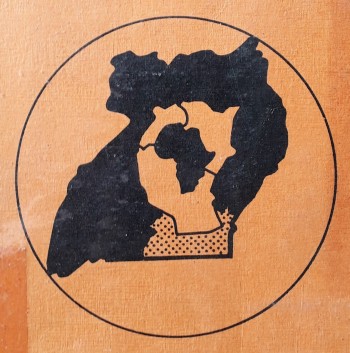
Makerere Geography Department occasional papers (1960s/70s)
After months of ‘virtual’ team meetings, there was a sense of excitement about finding ourselves – all six members of the project team from three institutions – in a single room for the first time, dragging tables and chairs into something that resembled a ‘roundtable’. We had two things in mind. Firstly, this workshop would provide space to interrogate some of the concepts and frameworks that had informed the initial outline of ‘Another World?’. A roundtable format, which celebrated partially formed ideas and produced critiques in conversation, seemed to serve this purpose well. The invitation was opened up to staff and students at the University of Edinburgh and nearby, whose perspectives from across disciplinary boundaries could help us see the project in fresh ways. Secondly, we hoped that the framework of ‘Another World?’ could foster a wider network of scholars with overlapping interests, in particular recognising the growing number of historians at Edinburgh who share a concern with thinking about twentieth-century African history in a global perspective. In this way, the workshop could continue the exciting conversations that have been happening through the Edinburgh Centre for Global History, and bring these into dialogue with university’s Centre for African Studies.
Reflecting on this a month later, the workshop was a great success on both fronts. The first roundtable, ‘Text, networks and materiality’ raised probing questions about where ‘the material’ ends and ideas begin. We heard about the value of ‘grey literature’ easily overlooked in the archives for its apparent dryness, about ideas ‘codified’ in ethno-nationalist publications, novels that recount world news arriving by lorry, a poem whose readership was hard to pin down, journalists navigating the ‘information sector’. The discussion picked up on the question of emotions – did they matter? (Surely!) Was this about textual genre? Could emotions be experienced collectively? Nationally? But then, which communities, excluding whom? Even as we were thrilled to discover that many of the actors in each of our research areas knew one another personally, we agreed that in the context of newly independent East Africa, it’s crucial to have a sense of the (often small) scale of elite networks, and of the interaction between class and gender within them. But what are the dangers of a broad ‘East African’ approach? We had already thought a lot how research questions based on country-specific cases needed to be asked of the region too. But how could overlapping cosmologies on smaller scales be acknowledged within this?
The second roundtable, ‘Thinking Globally’ scrutinised this final question further. We heard about how the ‘East African’ perspective changes if we view it from Indian Ocean islands, but also about what can be gleaned from a comparative view of mainland Tanzania and Kenya, about the located ‘East Africa’ being paramount even in publications that are so easily described as ‘global’, and about who might (not) have considered themselves ‘cosmopolitan’. The discussion did not hold back in identifying the pitfalls of ‘the global’. We acknowledged that thinking about ‘the global’ requires talk of capital, not to be conflated with corporate. And of religion too. But then is ‘identity’ useful to understand ways of seeing the world? What about ‘performance’?
As with every engaging workshop, I left with many additions to my reading list – notably work from adjacent fields that could help us think through some of the concepts we discussed, like Ifeoma Nwankwo’s Black Cosmopolitanism and Pheng Cheah's What is a World? – and with many more questions than I arrived with. After all, the workshop was not about establishing a particular way to approach the history of mid-twentieth century East Africa in a regional and global perspective, but about acknowledging some of the challenges of doing so. The day’s closing reflections captured this perfectly: texts indeed move, but ideas move orally too, with people whose movements are forced as well as free. This mobility is not only a historical question but one that, as each of us acknowledges our ‘passport privilege’, informs the scholarly practice we continue to engage in too.
Thank you to the Edinburgh Institute for Academic Development Action Fund for supporting this workshop through a Small Grant for catering.
And thanks to everyone who attended!



